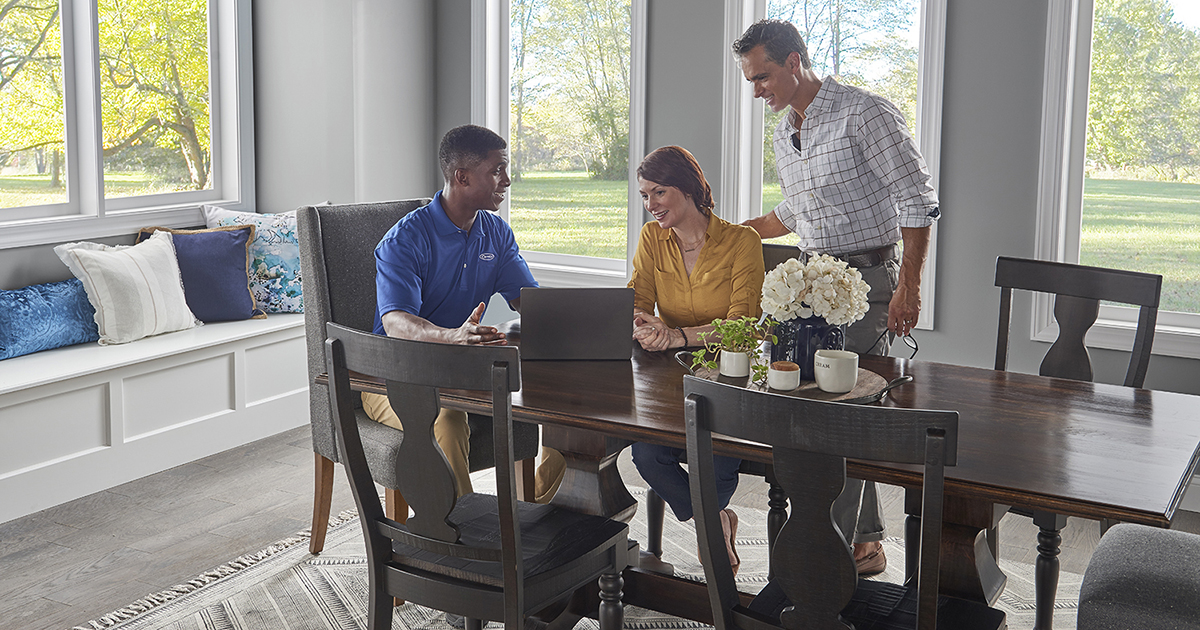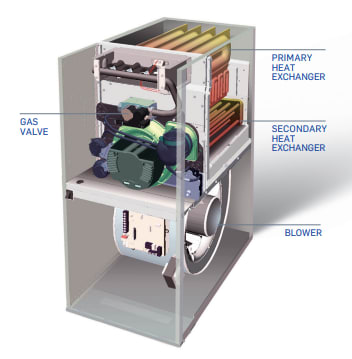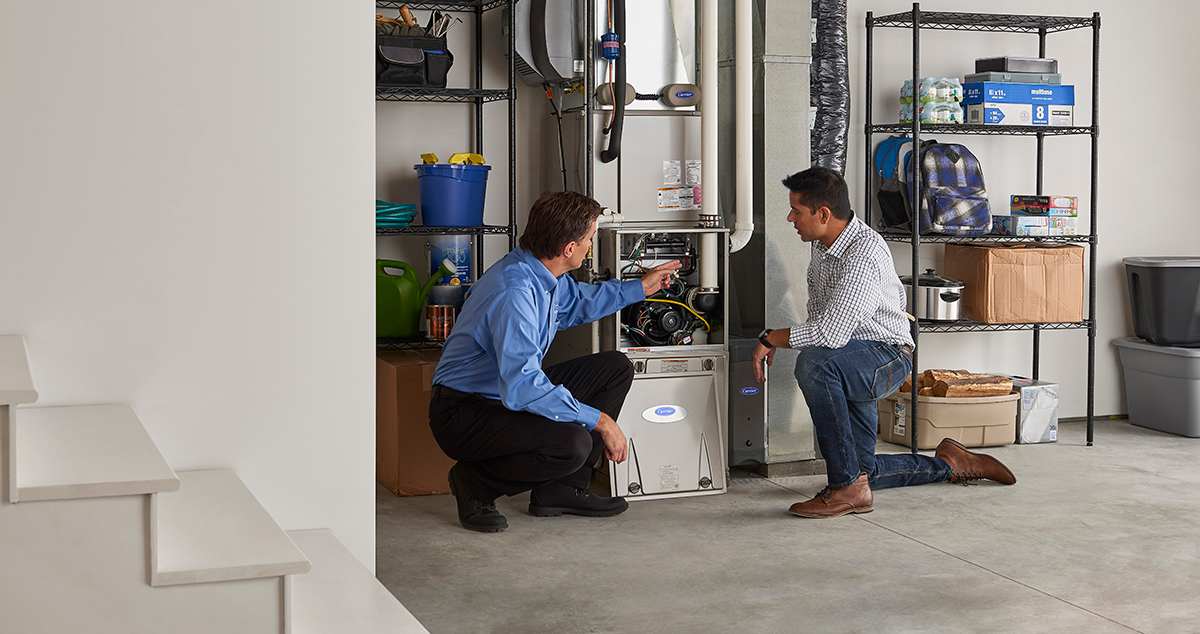Furnace Not Turning On
By Travis Baugh
Why is my furnace not turning on? Dealing with a furnace that won't turn on can be incredibly frustrating, especially when you need it most. Understanding the basics of how your furnace operates is crucial for diagnosing and fixing the issue. This article will guide you through furnace troubleshooting steps, highlight common causes for furnace failure and explain when it's time to call in the professionals.

DIY Solutions for a Furnace Not Turning On
If your furnace isn't turning on, there are a few troubleshooting steps you can take to identify and possibly resolve the issue. Here are three common areas to check:
- Check the thermostat settings: Ensure the thermostat is set to the desired temperature and mode. Make sure it is set to 'heat' and the temperature is higher than the current room temperature. Incorrect thermostat settings can prevent the furnace from turning on.
- Inspect the furnace switch: Locate the furnace switch, usually found on the side or near the unit. Ensure the switch is set to 'on' or 'heat' and not accidentally turned off. If it’s already in the correct position, try flipping it off and on again to reset the system.
- Ensure the circuit breaker is not tripped: Check your home's electrical panel for any tripped circuit breakers. Locate the breaker controlling the furnace and make sure it is in the 'on' position. If it has tripped, reset it by flipping it to 'off' and then back to 'on.'
- Cleaning or replacing air filters: A dirty filter will cause excessive stress on the furnace, heat exchanger, and blower motor, and can cause it to overheat and automatically shut down. The furnace filter should be checked every four weeks and be cleaned or replaced if necessary.
The air filter for the gas furnace may be located an external filter cabinet attached to the side or bottom of the furnace casing. If the air filter has been installed in another location, contact your dealer for instructions. To inspect, clean and/or replace the air filter(s), follow these steps:
- Turn off electrical supply to the furnace.
- Remove air filter from the filter cabinet.
- Remove filter cabinet door
Regularly replacing your furnace filters can improve the efficiency and performance of your furnace.

Three Common Reasons for Furnace Not Turning On
When your furnace fails to kick on, it can be both frustrating and uncomfortable, especially during cold weather. Understanding common reasons for furnace failure can help you diagnose the issue and decide whether you need professional help. Here are three typical culprits:
1. Clogged Air Filters
Clogged air filters are another common cause of furnace failure. Dust, dirt, and debris can accumulate in the filters over time, obstructing airflow and reducing efficiency. Regularly checking and changing furnace filters can help prevent this issue and ensure optimal performance.
2. Faulty Ignition System
A faulty furnace ignition system is a primary reason for a furnace not kicking on. This system is responsible for igniting the burner and starting the heating process. If the ignition system malfunctions, it may prevent your furnace from starting. A qualified technician should inspect and repair the ignition system.
3. Issues with the Gas Supply
If your furnace runs on natural gas, a disruption in the gas supply can cause it to fail. Check if other gas-powered appliances in your home are working properly to rule out a gas supply issue. If you suspect a problem, contact your gas provider to resolve the issue.
When to Seek Professional Help For A Furnace Not Turning On
If you're experiencing issues with your furnace not kicking on, it may be time to seek professional furnace repair or even a furnace replacement depending on the age of your system. While there are some troubleshooting steps you can take on your own, persistent issues like the following may indicate a more serious problem that requires professional attention.
- Unusual noises or smells emanating from your furnace
- Strange noises like banging, grinding, or squealing could be a sign of a worn-out or damaged part.
- Unpleasant smells like burning or gas odors can indicate a potential safety hazard, such as a gas leak or carbon monoxide leak. It's crucial to address these issues promptly to ensure the safety of your household.
Concerns about gas leaks or carbon monoxide should never be taken lightly. If you suspect a gas leak, turn off the gas supply immediately and evacuate your home. Carbon monoxide, an odorless and colorless gas, can be deadly. If you have a carbon monoxide detector and it alerts you to the presence of this gas, leave your home immediately and contact a professional furnace repair service.
Preventative Maintenance for Optimal Furnace Performance
Regular maintenance is crucial for ensuring your furnace operates efficiently and reliably. By scheduling annual furnace inspections, properly cleaning and lubricating components, and regularly replacing filters, you can prevent issues and keep your furnace running smoothly. Learn more about furnace maintenance.
Connect With A Local Dealer When Your Furnace Won't Turn On
At Carrier, our network of dealers is ready to diagnose and fix any issues with your furnace, ensuring the comfort and safety of your home. Schedule an appointment with your local Carrier dealer to start the process of heating repair today.


